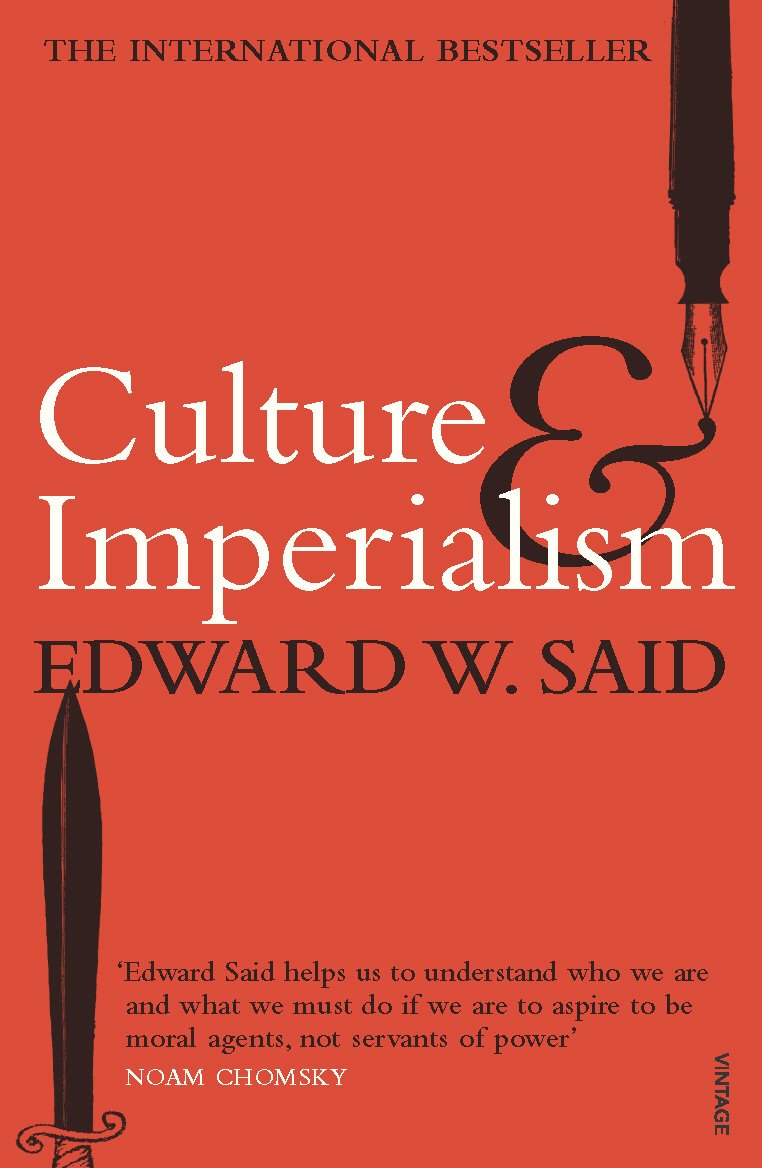Culture and Imperialism
- Brand: Unbranded

Description
For Said, The critic’s function is both enhanced and focused by his or her capacity to be in the world.
The list of bibliography for the book is even bigger than Orientalism (with more than 400 different references).Second side note: Oddly enough, one of the most significant impacts of this book was to create in me a desire to re-read many of the 19th Century British novels I last read in high school.
On a side note: I found his explanation of the difference between imperialism and colonialism worth keeping for later reference, “As I shall be using the term, ‘imperialism’ means the practice, the theory, and the attitudes of a dominating metropolitan center ruling a distant territory; ‘colonialism,’ which is almost always a consequence of imperialism, is the implanting of settlements on distant territory” (9). Liberating oppressed voices is of course more complex than that but it it something I’m deeply thinking about. As the connection between culture and empire, literature has "the power to narrate, or to block other narratives from forming and emerging", which might contradict the colonization of a people. In a wonderful metaphor, he sees the existence of anti-colonial revolt, the dissent of the Third World, and the "discrepant experiences" of the 'natives'- who would not have recognized themselves in Western accounts of the 'inferior races'- as introducing polyphony into the music of Western self-conception and identity. that the first half of the book is a work of literary analysis that discusses individual texts of the western canon within the contrapuntal framework, yet the second half of the book struggles to afford the same depth of analysis to the 'postcolonial' texts that it discusses.Said main doctrine is that through culture, the assumption of the divine right of imperial powers to rule is supported, that the institutional, political and economic operations of imperialism are nothing without the power of the culture that maintains them. The imperialism comes into it as a new framing device through which he analyses multiple works of fiction (including for some reason an opera). The book is seen as a "classic study", [11] and has influenced many later authors, books and articles.
Culture and Imperialism concludes with an examination of the American empire that while abandoning the idea of placing colonies of settlers abroad retains the central idea that expansion of influence and capitalism across the globe is both good and just regardless of how it may be seen by those subject to domination.I realize though that most people reading this don’t have that perspective (or haven’t re-contextualized their past in this manner) and so might not have any qualms outright dismissing the right of oppressed people to riot and be violent. Was the radical energy that propelled Algerians and Indians into mass insurrection finally contained and extinguished by independence? He thus can argue that imperialism has survived the disappearance of the colonial empires and devotes the last section of Culture to its workings in the United States since World War II.
His definition of "culture" is more complex, but he strongly suggests that we ought not to forget imperialism when discussing it. Said indicts public intellectuals in their silence towards the continuing narrative of Western exceptionalism and superiority.This brought forth the realization that it would have to take an American a "personal interest" to choose to read "something else. Said gives his material a rough chronological arrangement, covering the last two hundred years, but in fact he emphasizes space over time ( CI, 81). A member of the American Academy of Arts and Sciences, the Royal Society of Literature and of Kings College Cambridge, his celebrated works include Orientalism, The End of the Peace Process, Power, Politics and Culture, and the memoir Out of Place. Just the briefest mentions of former Spanish colonies and the rich literary scenes in Latin America with nods to Marquez and Fuentes.
- Fruugo ID: 258392218-563234582
- EAN: 764486781913
-
Sold by: Fruugo
